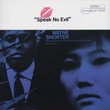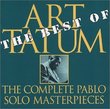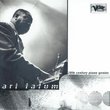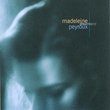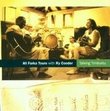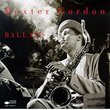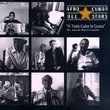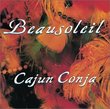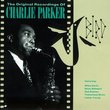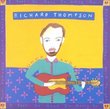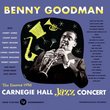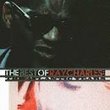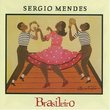| All Artists: Art Tatum Title: Piano Starts Here Members Wishing: 1 Total Copies: 0 Label: Sbme Special Mkts. Release Date: 2/1/2008 Genres: Jazz, Pop Styles: Swing Jazz, Traditional Jazz & Ragtime Number of Discs: 1 SwapaCD Credits: 1 UPC: 886972326221 |
Search - Art Tatum :: Piano Starts Here
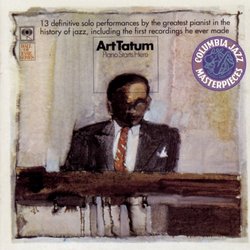 | Art Tatum Piano Starts Here Genres: Jazz, Pop
|
Larger Image |
CD DetailsSimilar CDs
Similarly Requested CDs
|
CD ReviewsWere the price of knowledge as cheap Samuel Chell | Kenosha,, WI United States | 05/05/2010 (5 out of 5 stars) "Arguably the greatest pianist of all time going for Amazon's lowest price. What's not to like? Once asked why he didn't choose a more innovative, progressive, exploratory path, saxophonist supreme Sonny Stitt snapped back, "What's wrong with you, man? You're supposed to keep it simple and play so people understand the music and enjoy it. Look at Art Tatum. He was a genius, and all he did is try to entertain people." We could draw a number of lessons from the response: 1. Sonny overestimated the musical understanding of his audience; 2. Sonny underestimated what is required to entertain people in the present time. 3. Sonny was simply wrong, and Art Tatum's indisputable genius has nothing to do with his success with the greater share of the public, whose interest rarely extends beyond guitars and vocals (except for those occasions when a parent's child is performing in public).. Amazon currently has this Columbia collection priced as low as it can go, so it's a perfect time to pick up some Art Tatum for those who have yet to make his acquaintance. "Tiger Rag" was Art's explosive entrance in music, but to a public accustomed to relegate instrumental music to the background and to take automatic disclaviers and digital pianos for granted, it's highly unlikely the 1934 recording would have a comparable effect upon first hearing. But there are several ways to gain an entrance into Tatum's music which, like a Shakespeare sonnet, "tests" the listener as much as the other way around: 1. Listen to the plainest, most unadorned version of the melody you can find--enough times that it's part of your consciousness. Be sure to take note of the form (32-bar song form, Type A song with a bridge or Type B song without a bridge, etc.). Keep time--don't wait for the time to catch ahold of you but take an active role in accounting for each beat. 2. Put Tatum's version alongside versions of his predecessors, contemporaries, and successors. Before pulling the trigger and making a judgment, simply take note of the differences among them. 3. Learn as much about the "language" of music as possible. Certainly we wouldn't feel competent to judge the meaning and effects of a language that was unfamiliar with us. Also, take into consideration the "dialects" that often make the comprehension of a native language difficult. The same is true with regard to musical "style." Tatum can be difficult because he offers too much, rather than too little, help to the listener. With Oscar Peterson the key changes are fairly predictable and clearly stated whereas with Tatum they slip in and out like a record that has either been momentarily slowed down or speeded up. With Monk, on the other hand, there are so many stops and starts, extended silences, deliberations that may or may not result in a musical statement, that we as listeners have no choice but to become involved in "helping him out" with completion of the melodic-harmonic-rhythmic idea. And rather than assume that a failure to respond fully to Tatum's music represents a shortfall--whether the listener's or the artist's--take it as a sign of progress. For all of us who struggle to grasp Tatum's art, there's a point where we wonder if we're simply being "snowed" by a lot of pointless technique. But without arriving at that point--of doubt, skepticism, suspicion--there's no possibility of making progress beyond it. You've come half way. The second half of the journey is to discover how all of those streams of notes can produce comprehensible and enjoyable, complete and immeasurable satisfaction and delight--not in spite of, but because of, the pyrotechnics. That moment brings the realization that the apparent extra verbiage, like the longer sentences of Faulkner or Joyce, aren't extra at all but essential to, if not inseparable from, the palace of art that has been constructed for the invited guest (but certainly not mapped, explored or domesticated) in record time. But from that point on, the world of the performance is all yours, and the revelation comes at the discovery of beauty that is a function of technique, not to mention a microcosm of the very nature of music, the creative process, and the potential of human consciousness itself." The Master of The Keyboard Live R. McRae | Saugus, CA | 06/28/2007 (5 out of 5 stars) "Recorded at the Los Angeles Shrine Auditorium in 1949, one can begin to imagine what it must have been like attending an Art Tatum concert. "Piano Starts Here" wonderfully captures the moment. Floating fingers across ivory keys is the best I can describe Mr. Tatum's talent. In the words of his fellow contemporaries, "God just came in". That was the cue for anyone else at the piano to step aside." Yeah, it is that good dnk | Boston, MA United States | 12/31/2007 (5 out of 5 stars) "The jazz novice speaks again: Don't let the superlatives (from these amateur reviewers or some of Tatum's contemporaries) compel you to look for flaws that everyone else must have missed. You're not going to find them. While I'm still not experienced enough to confirm that Tatum was indeed the best jazz pianist that ever lived, I can say that he is the best I have ever heard. Of course he can master the fundamentals of his pieces- most of the greats can. What sets him apart from everyone else I have ever heard are the textured and varied nuances he adds to just about every piece on this album and the breakneck, breath-taking speed at which he does it. Speed, of course, can be cheap- just another trick up a second-rate musician's sleeve to cover his sloppiness or the inability to find the soul of the piece. Tatum found the soul, but with a wink.
How great is Tatum? In his hands, "Tea for Two" is as deep and complicated as Monk's "Eronel", "How High the Moon" goes from a favorite jazz standard to a revelation and "Yesterdays" and "Someone to Watch Over Me", both so often smothered with overstylization, are stripped down such that their original intents can shine through. Sadly, speed means just that- the CD feels like it's over in half an hour. The silver lining is that you have that much more time to listen to it again and again." |

 Track Listings (13) - Disc #1
Track Listings (13) - Disc #1